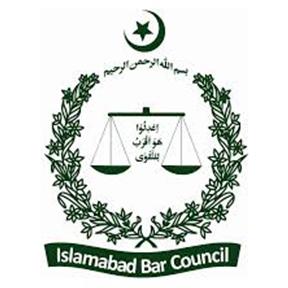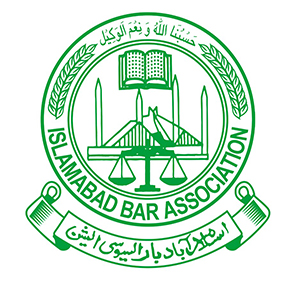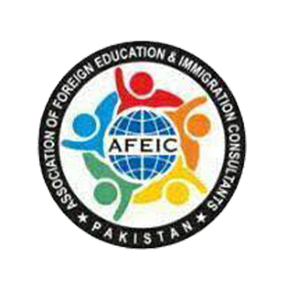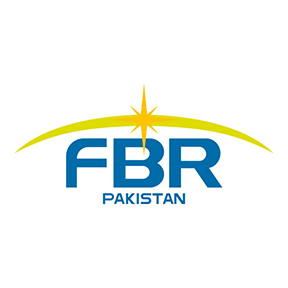Foreign nationals who wish to travel to the United States must first obtain a student visa. You must have a student visa to travel to the United States to study. Your course of study and the type of school you plan to attend determine whether you need F visa or other.
To enter the US to attend following:
| University or college |
| High School |
| Private elementary school |
| Seminary |
| Conservatory |
| Another academic institution, including a language training program |
Steps of Student Visa:
Before you can apply for a F/ student visa, you must first apply and be accepted by a U.S. institution of higher education that is certified by the Student and Exchange Visitor Program (SEVP). Even when an institution is SEVP-certified and able to issue I-20 and DS-2019 forms for use in visa applications, it may not hold national or regional accreditation. The U.S. Department of Education and Council for Higher Education Accreditation databases list accreditation status for all U.S. institutions. Institutions designated by the Bureau of Educational and Cultural Affairs to place participants in Academic Exchange programs (J visas) must be accredited. Recognition of course credits and degrees by other institutions and by U.S. and international employers is linked to an institution’s accreditation.
Once accepted at an SEVP-certified school, you will receive a Form I-20 or DS-2019 from the institution’s international student office to present when you apply for your student visa. You must present the Certificate of Eligibility for Nonimmigrant (F-1) Student Status-For Academic and Language Students, Form I-20 to the consular officer at U.S. Embassy or Consulate in your country of residence.
There are several steps to apply for a visa. The order of these steps and how you complete them may vary by U.S. Embassy or Consulate. Please consult the instructions on the embassy or consulate website.
Complete the Online Visa Application
- Online Nonimmigrant Visa Application, Form DS-160
- You must:
1) complete the online visa application, and 2) print the application form confirmation page to bring to your interview.
- Photo –You will upload your photo while completing the online Form DS-160. Your photo must meet the following Photograph Requirements.
Photo Requirements:
Your photo is a vital part of your visa application. To learn more, review the information below on how to provide a suitable photo. Digital images are required for some visa categories, while photos are required for other visa categories. The acceptance of your digital image or photo is at the discretion of the U.S. embassy or consulate where you apply. It is recommended you to use a professional visa photo service to ensure your photo meets all the requirements.
Your photos or digital images must be:
- In color
- Sized such that the head is between 1 inch and 1 3/8 inches (22 mm and 35 mm) or 50% and 69% of the image’s total height from the bottom of the chin to the top of the head. View the Photo Composition Template for more size requirement details.
- Taken within the last 6 months to reflect your current appearance
- Taken in front of a plain white or off-white background
- Taken in full-face view directly facing the camera
- With a neutral facial expression and both eyes open
- Taken in clothing that you normally wear on a daily basis
- Uniforms should not be worn in your photo, except religious clothing that is worn daily.
- Do not wear a hat or head covering that obscures the hair or hairline, unless worn daily for a religious purpose. Your full face must be visible, and the head covering must not cast any shadows on your face.
- Headphones, wireless hands-free devices, or similar items are not acceptable in your photo.
- Eyeglasses are no longer allowed in new visa photos, except in rare circumstances when eyeglasses cannot be removed for medical reasons; e.g., the applicant has recently had ocular surgery and the eyeglasses are necessary to protect the applicant’s eyes. A medical statement signed by a medical professional/health practitioner must be provided in these cases. If the eyeglasses are accepted for medical reasons:
- The frames of the eyeglasses must not cover the eye(s).
- There must not be glare on eyeglasses that obscures the eye(s).
- There must not be shadows or refraction from the eyeglasses that obscures the eye(s).
- If you normally wear a hearing device or similar articles, they may be worn in your photo.
Schedule an Interview:
Visa applicants generally require an interview, with certain limited exceptions below. Consular officers may require an interview of any visa applicant.
| If you are age: | Then an interview is: |
| 13 and younger | Generally, not required |
| 14 – 79 | Required (some exceptions for renewals) |
| 80 and older | Generally, not required |
You should schedule an appointment for your visa interview at the U.S. Embassy or Consulate in the country where you live. You may schedule your interview at another U.S. Embassy or Consulate, but be aware that it may be more difficult to demonstrate that you qualify for a visa outside of the country where you live.
Wait times for interview appointments vary by location, season, and visa category, so you should apply for your visa early. Review the interview wait time for the location
Where you will apply:
Appointment Wait Time:
Check the estimated wait time for a nonimmigrant visa interview appointment at a U.S. Embassy or Consulate.
Note: Please check the individual Embassy or Consulate website to determine if your case is eligible for a waiver of the in-person interview.
Applicants scheduling visa appointments in a location different from their place of residence should check post websites for nonresident wait times.
Top of Form
New Students – Student (F) visa for new students can be issued up to 365 days before the start date of a course of study. However, you will not be allowed to enter the United States on your student visa more than 30 days before the start date.
Prepare for Your Interview: –
- Fees – Pay the non-refundable visa application fee, if you are required to pay it before your interview. If your visa is approved, you may also pay a visa issuance fee, if applicable to your nationality. Fee information is provided below:
Application Fee:
$185
A consular officer will interview you to determine your qualifications for a student visa, and may request additional documents, such as evidence of:
- Your academic preparation, such as:
- Transcripts, diplomas, degrees, or certificates from schools you attended; and
- Standardized test scores required by your U.S. school;
- Your intent to depart the United States upon completion of the course of study; and
- How you will pay all educational, living and travel costs.
Attend Your Visa Interview:
A consular officer will interview you to determine whether you are qualified to receive a student visa. You must establish that you meet the requirements under U.S. law to receive a visa.
Ink-free, digital fingerprint scans are taken as part of the application process. They are usually taken during your interview, but this varies based on location.
After your visa interview, the consular officer may determine that your application requires further administrative processing. The consular officer will inform you if this is required.
After the visa is approved, you may need to pay a visa issuance fee (if applicable to your nationality), and make arrangements for the return of the passport and visa to you.
Entering the United States:
A visa does not guarantee entry into the United States. A visa only allows a foreign citizen to travel to a U.S. port-of-entry (generally an airport) and request permission to enter the United States. The Department of Homeland Security (DHS), U.S. Customs and Border Protection (CBP) officials at the port-of-entry have authority to permit or deny admission to the United States.
After you present your passport, visa, and Form I-20 at the port-of-entry, a CBP official will make this decision. Upon admission, the CBP official will provide an admission stamp or paper Form I-94, Arrival/Departure Record.
Extending Your Stay:
Foreign students in the United States with F visas must depart the United States within 60 days after the program end date listed on Form I-20, including any authorized practical training.
Foreign students may request an extension through U.S. Citizenship and Immigration Services (USCIS) website.
Failure to depart the United States on time will result in being out of status. Under U.S. law, visas of individuals who are out of status are automatically voided. Any multiple entry visa that was voided due to being out of status will not be valid for future entries into the United States.
Failure to depart the United States on time may also result in you being ineligible for visas in the future in certain cases.
Change of Status:
If your plans change while in the United States (for example, you marry a U.S. citizen or receive an offer of employment), you may be able to request a change in your nonimmigrant status to another category through U.S. Citizenship and Immigration Services (USCIS). While you are in the United States, receiving a change of status from USCIS does not require you to apply for a new visa. However, once you depart the United States you must apply for a new visa at a U.S. Embassy or Consulate in the appropriate category for your travel.
You cannot take risk of mistakes in your case, so for appropriate guidance, assistance and legal advice for your student visa/F Visa processing including issuance of Form I-20 from approved US Institute associated with Qazi Law Associates, preparation of complete student visa documentation, certified translations and foreign notarization of your documents as per international standard/requirements, manage property valuation reports through certified/licensed property valuer accredited by the Government of Pakistan and provide step by step guidance, legal help/ assistance, interview preparation etc. until final outcome, contact Qazi Law Associates.
Here at Qazi Law Associates, our Immigration Lawyer will handle your case inclusive of:-
-Pre-guidance/ advise
-Complete Legal assistance
-Admission/I-120
-Online Form
-Fee Submission
-Interview Appointment (subject to availability of auto slot)
-Complete visa case file preparation comprising of all required Visa documentation including following accomplishments: –
-Certified translation
-Legal documentation (if so required)
-Foreign notarization/attestation of documents
-Interview preparation/guidance
-All things to do until final interview/outcome by US Embassy
If you have any questions or need further information, please do not hesitate to schedule of appointment for free consultation session.








